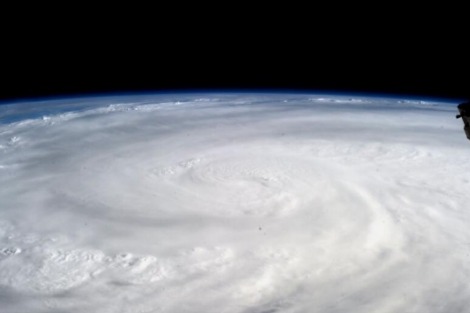Keywords: Fatima Measham
There are more than 200 results, only the first 200 are displayed here.
-

INTERNATIONAL
- Fatima Measham
- 02 May 2014
11 Comments
As I scanned the actor profiles for the new Star Wars film, it became apparent that no brown actress was among them. The mythology George Lucas created 40 years ago remains predominantly male and white. What happens when brown women are kept out of the picture is that their invisibility is normalised. We are not seen to contribute, much less lead. This is not harmless. It makes our presence in society incidental. Dispensable.
READ MORE 
-

ENVIRONMENT
- Fatima Measham
- 16 April 2014
6 Comments
A review of competition laws is allowing the Government and industry groups to push for a ban on environmental boycotts. It is a strange protectionism that portrays industries as victims, defenceless against the barrage of readily available information. It appears the free flow of information cannot be so free as to disrupt capital, and the only legitimate choices within a free market are ones unimpeded by ethics or conscience.
READ MORE 
-

AUSTRALIA
- Fatima Measham
- 10 March 2014
19 Comments
After more than a decade of refugee advocacy, campaigns still cater to small 'l' liberals and progressives. They are of course critical to consolidating support for asylum seekers and sustaining political pressure. Yet the debate has become so polarised that it would seem as if the left has a monopoly on compassion. This is a serious campaign problem because it alienates those who might otherwise be allies.
READ MORE 
-

AUSTRALIA
- Fatima Measham
- 28 January 2014
21 Comments
Those who campaign for more humane treatment of asylum seekers cannot keep assuming that the elements of the debate that matter to them most are the most persuasive. The hardest thing to accept may be that the socioeconomic anxieties for which immigration serves as proxy, as well as the insecurity and resentment generated by state impotence and political opportunism, do not necessarily make for 'bad' people.
READ MORE 
-

INTERNATIONAL
- Fatima Measham
- 17 January 2014
1 Comment
I may have gotten extremely sweary on social media. Part of it was due to gut-deep fear for people to whom I am personally connected, but also generally for a country that runs in my veins. The other part of it was fury that the growing reality of extreme weather events is still being characterised as natural by climate change sceptics who have the luxury of speculating and refuting links outright.
READ MORE 
-

INTERNATIONAL
- Fatima Measham
- 13 December 2013
14 Comments
I woke up to the news on a Saturday morning. One year ago tomorrow, a man walked into the Sandy Hook Elementary School in Newtown, Connecticut, and opened fire. In the aftermath, gun lobbyists seethed with high indignation that President Barack Obama was politicising a tragedy. It goes to show that the ones who complain about the politicisation of tragedy tend to be the ones who do not want to do anything about it.
READ MORE
-

INTERNATIONAL
- Fatima Measham
- 12 November 2013
23 Comments
I may have gotten extremely sweary on social media. Part of it was due to gut-deep fear for people to whom I am personally connected, but also generally for a country that runs in my veins. The other part of it was fury that the growing reality of extreme weather events is still being characterised as natural by climate change sceptics who have the luxury of speculating and refuting links outright.
READ MORE 
-

ENVIRONMENT
- Fatima Measham
- 04 November 2013
10 Comments
The bases of our arguments over climate change have been trodden so much that a moat has formed around us, leaving us stuck in our little island fortresses. We know thoroughly by now the content of our disagreement. But what are the things that do not require persuasion? Is it possible that we have values and interests that intersect? Adaptation may be that intersection.
READ MORE 
-

RELIGION
- Fatima Measham
- 24 September 2013
18 Comments
Ever since Pope Francis stepped onto a balcony at St Peter's Basilica, his words have been abbreviated, deconstructed and turned into memes. The attention paid to last week's interview with the Pope, conducted on behalf of by major Jesuit journals worldwide, suggests that the Roman pontiff is still held relevant, even by those who regard religious institutions as anachronistic.
READ MORE 
-

AUSTRALIA
- Fatima Measham
- 16 August 2013
15 Comments
Hot-button topics such as economic management and asylum seekers are best seen from a wide lens, yet we seem determined to keep the rest of the world out of the frame. It is a sea-girt mentality that our politicians don't care to take apart because it is too hard to convince the average voter that there are in fact other people on the planet. Such denialism will inevitably leave us ill-prepared for significant challenges.
READ MORE 
-

AUSTRALIA
- Fatima Measham
- 15 July 2013
9 Comments
Voters find it difficult to buy ideas wholesale when they don't make sense in retail. Imagine a voter who would like to see the Labor Party build on reforms in education and health but cannot abide its policy on asylum seekers. This is where the focus on personalities actually matters. Much of the dissatisfaction with leaders ultimately rests on a public assessment of the way policies are prosecuted.
READ MORE 
-

AUSTRALIA
- Fatima Measham
- 26 June 2013
18 Comments
Chief of Army Lt Gen David Morrison summed it up well. In condemning the culture of 'permission' that allowed defence officers to exploit women, he said: 'The standard you walk past is the standard you accept.' Framing sexism in terms of permission should sharpen the way we respond to abuse of women — the same compulsion to conform presents us with opportunities to disrupt tacit permissions.
READ MORE 